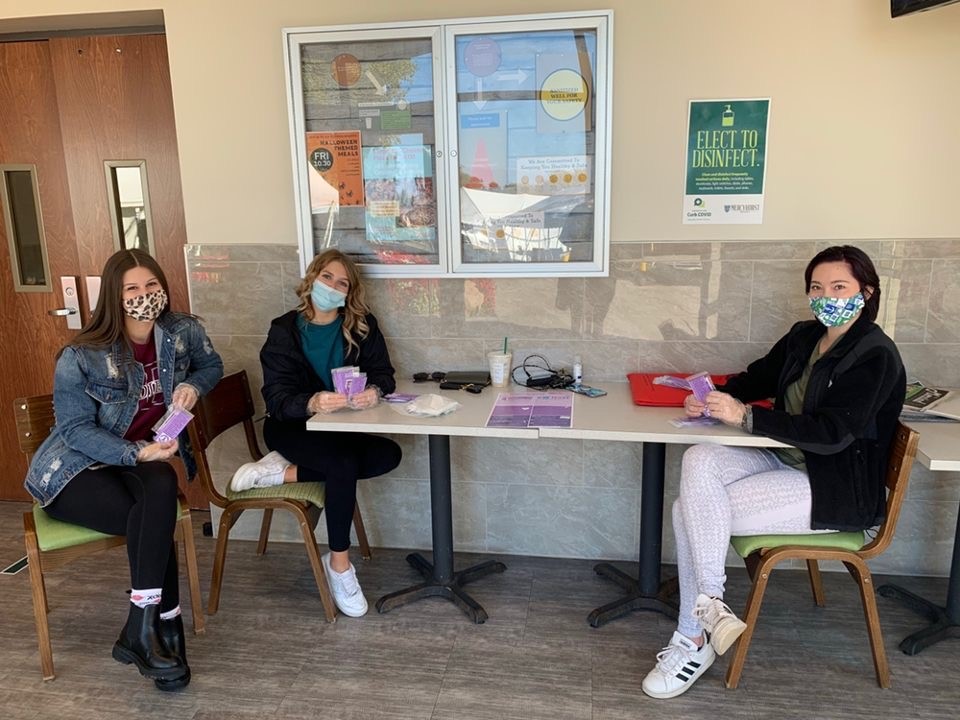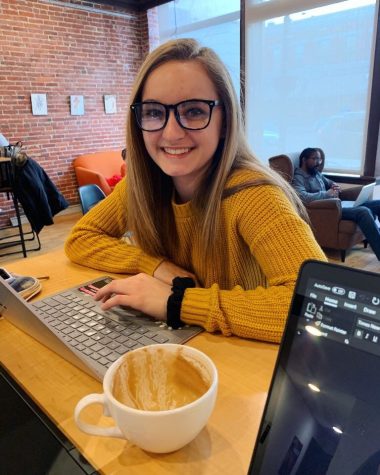Domestic violence conversation continues
October 21, 2020
Mercyhurst’s core values have always revolved around being good stewards of the community beyond our gates and part of doing this is addressing violence and injustice wherever it might exist. Because October is Domestic Violence Awareness Month, now more than ever it is important that members of the campus community come together to recognize the “culture of abuse” and how they might be part of changing the narrative.
“[The] culture of abuse exists anywhere a community permits, either by action or inaction, for abuse to exist,” said Michael Madonia, Mercyhurst Empowerment and Prevention Project manager. “The abuse becomes normative. People grow to expect it and/or accept it and/or at the least avoid and turn a blind eye to it.”
The effects of this culture can be seen in various social organizations, from as small of a scale as the family to that as large as the military, which is why it is so important that individuals educate themselves about the detriments of abuse. Often it is thought that victims endure abuse by a stranger, but it is much more likely that it is at the hands of someone they know and often trust.
“Mercyhurst is doing a lot to change the culture and has even more room to grow. The problem is bigger than any one person or any one office or any one grant,” said Madonia.
The conversation about domestic violence is clearly gaining traction at Mercyhurst as numerous clubs and organizations have hosted educational events during the past month.
One of the first events was a Domestic Violence Awareness Month meeting on Oct. 5. The virtual event was hosted by Active Minds and Psychology Club, featuring Madonia as a guest speaker.
“During this meeting, we discussed many topics revolving around domestic violence, such as the warning signs, the psychological implications, what domestic violence is, domestic violence in college students, and where you can get help/how to help someone you know,” said McKenzie Kestler, Active Minds and Psychology Club president.
Having this information helps students to be aware of what domestic violence can look like and what resources are available to those who are in need of help. By becoming more aware of the warning signs of an abusive relationship students can prevent others from ending up in a dangerous situation.
“It is important that students learn about domestic violence awareness month because it will raise awareness and allow students to celebrate survivors, network for change and think of victims. Making a change starts by having a conversation,” said Kestler.
Later in the month, on Oct. 16, Alpha Phi Sigma handed out purple ribbons and informational cards about resources available to those effected by domestic violence. The criminal justice honor society had two tables across campus, at the Student Union and Grotto Commons, where students and staff could pick up ribbons and informational cards.
In total, the group gave out more than 200 ribbons to not only raise awareness of domestic violence, but also show support for survivors.
Yet to come are the Clothesline Project on Oct. 22 and 23 and the Silent Witness Demonstration on Oct. 26.
In ode to a 1990 project by visual artist Rachel Carey-Harper, the Clothesline Project features t-shirts where each artist can tell an individual story about domestic violence, which acts as both an educational and therapeutic tool.
To date, over forty shirts have been designed by Mercyhurst students and these will be displayed in the Grotto Commons.
The next week, the Silent Witness Demonstration will be displayed in the lobby of Zurn Hall and the D’Angelo Performing Arts Center. This exhibit is provided by SafeNet, a local community domestic violence resource facility, and features life-sized cutouts representing local residents who lost their lives due to domestic violence.
Though the Mercyhurst community has certainly gotten the conversation about domestic abuse started, there is still much to be done.
“The key to changing social norms is numbers,” Madonia said, “the more people that talk about it the better. The more, different places that the issues get addressed the better. Numbers matter. Any time we have a conversation on campus about these issues it has an impact. Everyone has the potential to be a bystander… from the newest freshman to the most senior faculty member.”
You can learn more by attending any or all of these campus events, but remember the conversation must continue even after October ends.


